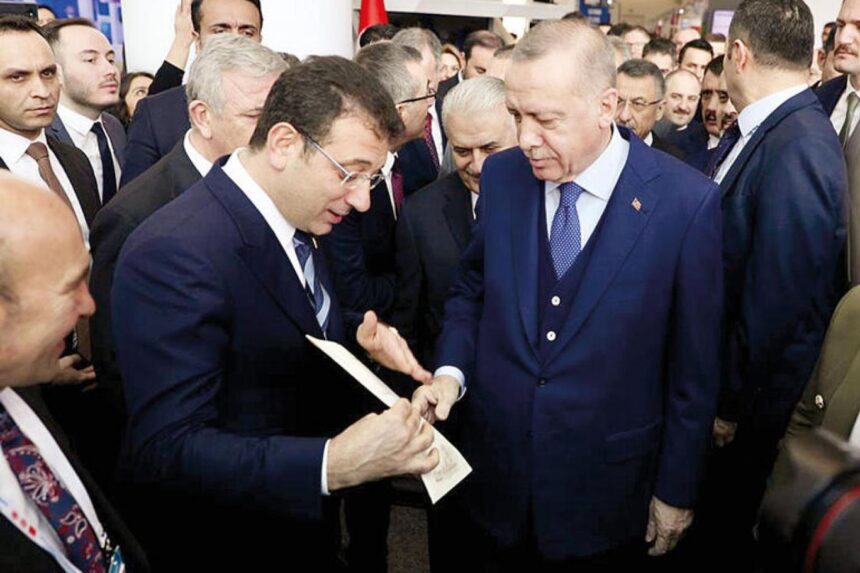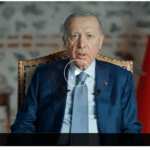In discussions of Turkey’s economic struggles, authoritarianism is often treated as the root cause. Analysts frequently point to the increasing concentration of power in President Recep Tayyip Erdoğan’s hands, the weakening of institutional checks and balances, and the repression of political opposition. These are undoubtedly serious concerns, particularly from a democratic governance perspective. However, authoritarianism on its own does not fully explain the extent of Turkey’s economic deterioration.
Although critics correctly highlight the regime’s authoritarian tendencies—dramatically illustrated by the arrest of Istanbul Mayor Ekrem İmamoğlu—the more fundamental economic threat lies in governance uncertainty, erratic economic policies, and entrenched corruption. These factors have played a far more direct role in eroding investor confidence, destabilizing the currency, and undermining long-term growth prospects.
The Real Issue: Unpredictability in Governance
What distinguishes Erdoğan’s leadership is not just its authoritarian tendencies, but the high degree of volatility in economic decision-making. Investors—whether foreign or domestic—can often tolerate political illiberalism so long as the economic rules are clear and stable. What they cannot tolerate is not knowing what will happen next. Under Erdoğan, Turkey has seen rapid and often unexplained shifts in fiscal and monetary policy, sudden dismissals of central bank governors, and the increasing politicization of regulatory bodies and courts.
Take, for example, the abrupt firing of Central Bank Governors in recent years, shortly after they raised or wanted to raise interest rates in line with conventional economic thinking. Such moves sent shockwaves through markets—not because Turkey had become less democratic overnight, but because it signaled that even basic policy logic was subordinate to political whims. In such an environment, investors struggle to assess risk, businesses hold back on expansion, and the economy becomes trapped in a cycle of short-termism and speculation.
Why Authoritarianism Alone Doesn’t Explain the Crisis
It’s important to understand that authoritarianism does not automatically preclude economic success. Many authoritarian or semi-authoritarian states—China, Singapore, the Gulf monarchies—have attracted enormous investment. What those governments tend to offer is a sense of policy continuity, institutional discipline, and administrative efficiency, even if political freedoms are constrained.
Turkey under Erdoğan offers no such trade-off. Instead of providing a reliable business environment, it combines political control with institutional volatility. Arbitrary arrests of political opponents, reversals in economic strategy, and shifting diplomatic alignments all contribute to a sense that Turkey is increasingly unpredictable—not just politically, but economically. This drives up the perceived risk of investing in the country, leading to capital flight and higher borrowing costs.
Some analysts argue that European Union (EU) countries and Western nations may increasingly distance themselves economically from Turkey due to concerns over its drift toward autocracy. They suggest that democratic values and human rights considerations play a critical role in the decisions of European businesses and governments.
Some European policymakers and business leaders may voice concern over Turkey’s democratic decline, and there may be targeted political consequences. However, historical evidence and practical economic considerations often show that Western investors primarily seek profit and market access rather than ideological alignment. Therefore, Turkey’s economic relationships with them are governed more by predictability and profit than by political alignment. In other words, it’s not Turkey’s lack of liberalism that deters long-term investment—it’s the absence of a stable economic framework and environment.
Historical Precedent: The Crises of 1995 and 2001
It is also instructive to recall Turkey’s earlier economic crises. In the mid-1990s and again in 2001, Turkey experienced severe economic turbulence—at times when its democratic credentials were arguably stronger than they are today. During these periods, Turkey had a more pluralistic political arena, and institutional checks and balances, though imperfect, were considered more robust than under the current administration.
Yet democracy alone did not spare the country from substantial fiscal and monetary instability. High inflation, weak banking regulations, and erratic policymaking caused massive capital outflows, soaring interest rates, and currency devaluations. The crisis of 2001 was particularly devastating, prompting sweeping reforms and an International Monetary Fund (IMF) bailout. Even then, it was clear that institutional discipline, transparency, and coherent economic policies were what truly mattered in stabilizing Turkey’s economy—not just the presence of democratic procedures.
These historical experiences underscore that structural reforms and predictable governance are critical for economic health, whether or not a government meets higher democratic standards. In other words, while democracy can foster accountability and reduce corruption, it is not by itself an inoculation against poor economic management.
Erdoğan’s Vision: A Strategic—but Risky—Reorientation
There are signs that Erdoğan’s economic trajectory is not simply reactive or chaotic, but part of a larger strategic shift. His government appears to be reimagining Turkey as a kind of China-lite manufacturing base for Europe: low labor costs, strong centralized control, and geostrategic relevance as key selling points. The idea seems to be that Turkey can maintain economic ties with the West, particularly in trade and production, while politically aligning more with Eurasian powers like Russia and China.
But there are limits to how far this model can stretch. Unlike China, Turkey lacks a deep technocratic bureaucracy or a long-term state-led development plan. Unlike Russia, it does not have natural resources to offset political risk. The result is not a stable hybrid system, but a patchwork of short-term fixes, political loyalty over merit, and institutional fragility. These features do not inspire confidence in investors or Turkish citizens trying to make rational economic decisions.
The Corruption Factor
Corruption further exacerbates the problem. Over the past decade, the rise of crony capitalism in Turkey—particularly in the construction and infrastructure sectors—has distorted the economy. Government contracts frequently go to companies close to the ruling party, undermining fair competition and transparency. Regulatory institutions have become politicized, and oversight mechanisms have been weakened or neutralized.
Corruption operates like a hidden tax. It diverts resources, distorts incentives, and fuels public distrust. For international investors, it adds another layer of uncertainty—especially when contract enforcement depends more on political ties than legal norms. The decline of Turkey’s position in Transparency International’s Corruption Perceptions Index and the World Bank’s governance indicators reflects what many businesses already know: the system is skewed and unpredictable.
Final Assessment
These dynamics are not merely theoretical—they have produced tangible economic harm. Foreign direct investment has slowed considerably since 2016. The Turkish lira has undergone repeated crises, constantly losing its value since the stage coup attempt of 2016. Inflation remains high, and citizens have responded by converting their savings into foreign currencies or cryptocurrencies, eroding confidence in the national currency and banking system.
Against this background, Turkey’s economic crisis cannot be explained solely through the lens of authoritarianism. It is better understood as the result of a governance model that prizes control over competence, improvisation over planning, and loyalty over law. The real threats to economic stability are not just political repression, but the unpredictability, inconsistency, and corruption that have become hallmarks of Erdoğan’s rule.
While immediate democratization may not be essential to restoring Turkey’s economic credibility, more inclusive governance would certainly help in the long run. What is urgently needed is a return to predictable, transparent, rules-based policymaking alongside robust anti-corruption measures. Without these fundamentals, Turkey will remain economically unstable—no matter its geopolitical alignment or ideological stance.



